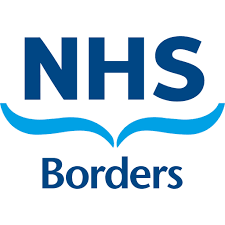1. New Staff
All new staff (including Bank staff) will be provided with CTG training. This will include access to:
- online K2 training package
- copy of the Fetal Monitoring Policy
- copy of the Fetal Monitoring Training Guideline
- PDF NICE Guideline CG190 Intrapartum Care (updated 2017)
- training record.
2. Existing Staff
Staff who have been trained and assessed competent in Fetal Monitoring will be required to:
- Complete K2 package as a minimum every 2 years:
- Fetal Physiology
- Intrapartum Cardiology
- Intermittent Auscultation.
- Complete the on line CTG assessment tool (K2) as a minimum every 2 years, obtaining 80% pass mark.
- Staff who are returning to work from maternity leave or long term sickness are required to complete the recommended K2 packages and pass the appropriate assessment tools, prior to interpreting CTG’s.
- In addition it is recommended that staff attend an adverse event meeting once a year. All staff need to evidence ongoing competence as part of the requirements for revalidation. Staff should use TURAS to record evidence of ongoing competence.
- All staff are required to attend yearly, a 2 hour Fetal Monitoring update (to include intermittent auscultation (in-house).
3. CTG Assessment
The training and assessment process for CTG interpretation has been based upon that designed and developed by the core intrapartum fetal monitoring group at St Georges Maternity Unit London. Provision of feedback and support to the clinician who fails to demonstrate competencies will be facilitated by:
- Lead Obstetric Consultant
- Senior Charge Midwife
4. The Process to be followed when a midwife or obstetrician does not obtain 80% Competency in CTG Assessment tool.
A midwife or obstetrician who does not achieve 80% competency in CTG Assessments shall:
- Have an individual discussion with the SCM on the pathophysiology of CTG
and NICE guidelines as soon as possible.
- Have a ‘one to one’ CTG training to discuss various case scenarios as soon
as possible.
- Revisit K2 training package and simulator.
- On completion of the above, to re-sit the CTG Assessment tool as soon as
possible.
5. Interim measures (until the obstetrician or midwife achieves 80% competency).
Confidentiality will be respected if a clinician does not achieve 80% competency in the CTG Assessment. However, this has to be balanced against patient safety and interim measures may be necessary to maintain the quality of intrapartum care.
The midwife / obstetrician will:
- Be unable to act as 2nd signatory on the ‘Fresh Eyes’ system.
- Ensure they do not interpret CTG’s unsupervised.
In the event of an obstetrician or midwife passing the assessment but continuing to demonstrate difficulty in analysis, interpretation or actioning of abnormal CTG’s the steps in 4/5 must be revisited and an action plan put in place by the Lead Obstetric Consultant/SCM to address the learning needs.

